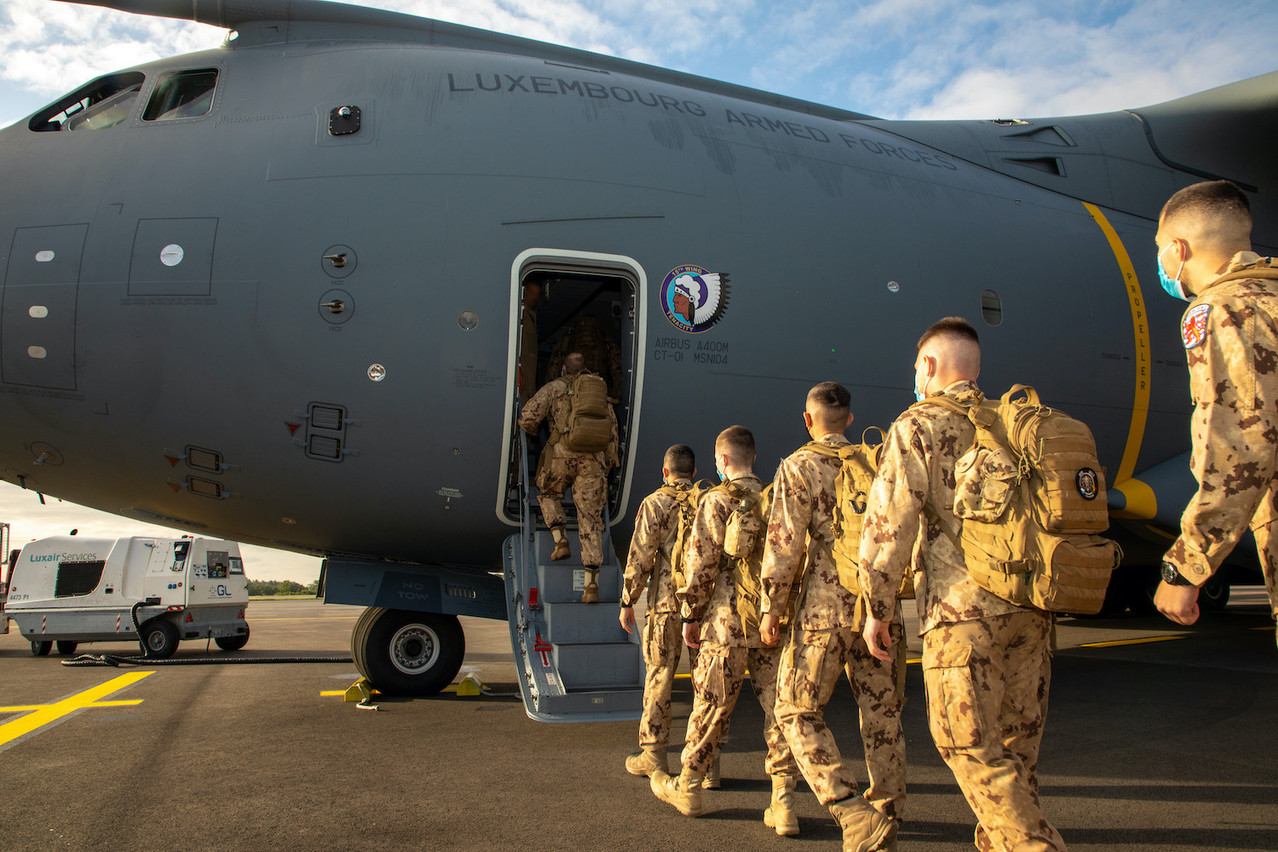Mali has said that Russia is training local staff as part of a bilateral agreement under which the country bought planes and equipment. But Western governments have said Russian mercenaries of the controversial paramilitary Wagner Group are being deployed.
“The presence of the Luxembourg army in Mali is more important than ever,” defence minister François Bausch told lawmakers on Friday during a meeting of the defence committee. The army provides satellite communications and situational awareness support to the UN’s Multidimensional Integration Stabilization Mission in Mali (Minusma).
In addition to five soldiers participating in Minusma, another 20 deployed in May last year as part of an EU training mission, EUTM, launched following a 2012 coup and jihadist uprisings in the country’s north.
A second coup--less than a decade after the one in 2012--ousted president Ibrahim Boubacar Keïta in August 2020. Mali’s new military leaders in September agreed to an 18-month transition government. But elections scheduled for February 2022 have been pushed back to 2026.
In response, the Economic Community of West African States (Ecowas)--a political and economic union of 15 countries in the region--imposed sanctions, including freezing Mali’s assets in Ecowas banks, suspending commercial and financial transactions, closing land and air borders with Mali and recalling ambassadors. Thousands took to the streets to protest against the sanctions in a rally staged by the military government on 14 January.
Russia blocks UN support for sanctions
The UN’s Minusma mission had to halt flights to Mali because of the border closures. The mission has over 13,000 troops in the country trying to quell violence amid Al-Qaeda and Islamic State uprisings. The mission is one of the deadliest of the UN’s peacekeeping missions with 268 fatalities as of 31 December 2021.
Luxembourg’s government is proposing to extend its participation by two years. Lawmakers in January 2020 had agreed plans to post the military to Mali until 2022. The cost for both the UN and EU missions amounted to around €18.9m. Members of the defence committee on 14 January agreed in principle to extend the mission, a decision that will have to be confirmed by a vote in the plenary.
The grand duchy’s armed forces are crucial to providing communications capabilities to Minusma, Bausch said on Friday, especially if Mali is handing over infrastructure to non-governmental organisations.
The defence minister was due to visit Mali from 31 January to 3 February but his visit has been postponed. Air France last week said it is cancelling all flights to and from Mali until further notice.
Russia had blocked UN support for the Ecowas sanctions with Russian military trainers now on the ground. The EU has imposed sanctions against the Wagner Group over human rights abuses in the Central African Republic and elsewhere. Officials from both sides have repeatedly denied claims that there are ties between Wagner and the Kremlin.
“This deployment can only further deteriorate the security situation in West Africa, lead to an aggravation of the human rights situation in Mali [and] threaten the agreement for peace and reconciliation,” a group of 15 Western governments said about Wagner Group’s presence in Mali. Luxembourg wasn’t among the signatories of this .
Sweden withdraw special forces
Sweden, which signed the document in December, has since announced it would withdraw around 150 troops from the so-called Takuba special forces counter-terrorism mission. It will review its involvement in the UN Minusma programme, Swedish foreign affairs minister Ann Linde said during an EU meeting on 14 January.
Bausch’s decision to postpone his visit was taken following this meeting, an official statement published on 14 January said. “I agree to maintaining our military commitments for the moment, but we must be ready to reassess the situation at any time and above all, we must continue to keep all channels of communication open with the government in place,” he said. “Our primary objective must be to fight terrorism and to support Mali in regaining constitutional, democratic, inclusive and sustainable governance as quickly as possible.”
In addition to providing military support, Luxembourg has a development cooperation agreement with Mali, which regulates humanitarian and development assistance.
The government spent around €55m on the third edition of this cooperation agreement, from 2015 until 2019, in support of projects in the areas of education, health and hygiene, and food and water security. The first edition of the agreement launched in 2003, but it has yet to be renewed since the 2020 coup.
Ousted president Keïta died on Sunday, aged 76, at his home in Bamako, family members to AFP. The cause of his death was not immediately clear.
